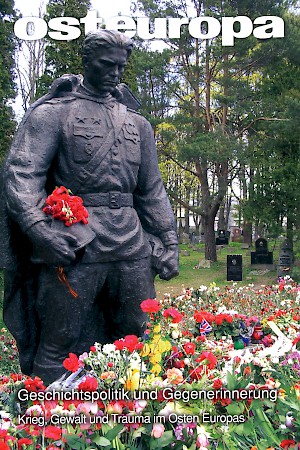Gaps in Memory
Baltic Experiences and Europe’s Memory
Deutsche Fassung
Abstract
The upheaval of 1989–1991 led not only to a political reordering of Europe. “European memory” has been in motion since then as well. If Auschwitz as the “break with civilisation” was a point of reference for appraising the past in Western Europe, then the debate over Communist dictatorship stands at the centre of public discourse in East-Central Europe. This results in conflicts over the politics of memory, as is shown by the debate over the equating of National Socialism and Communism unleashed by Latvian politician Sandra Kalniete in 2004 and the dispute over the relocation of a Soviet war memorial in the Estonian capital Tallinn in 2007.
(Osteuropa 6/2008, pp. 117–128)



